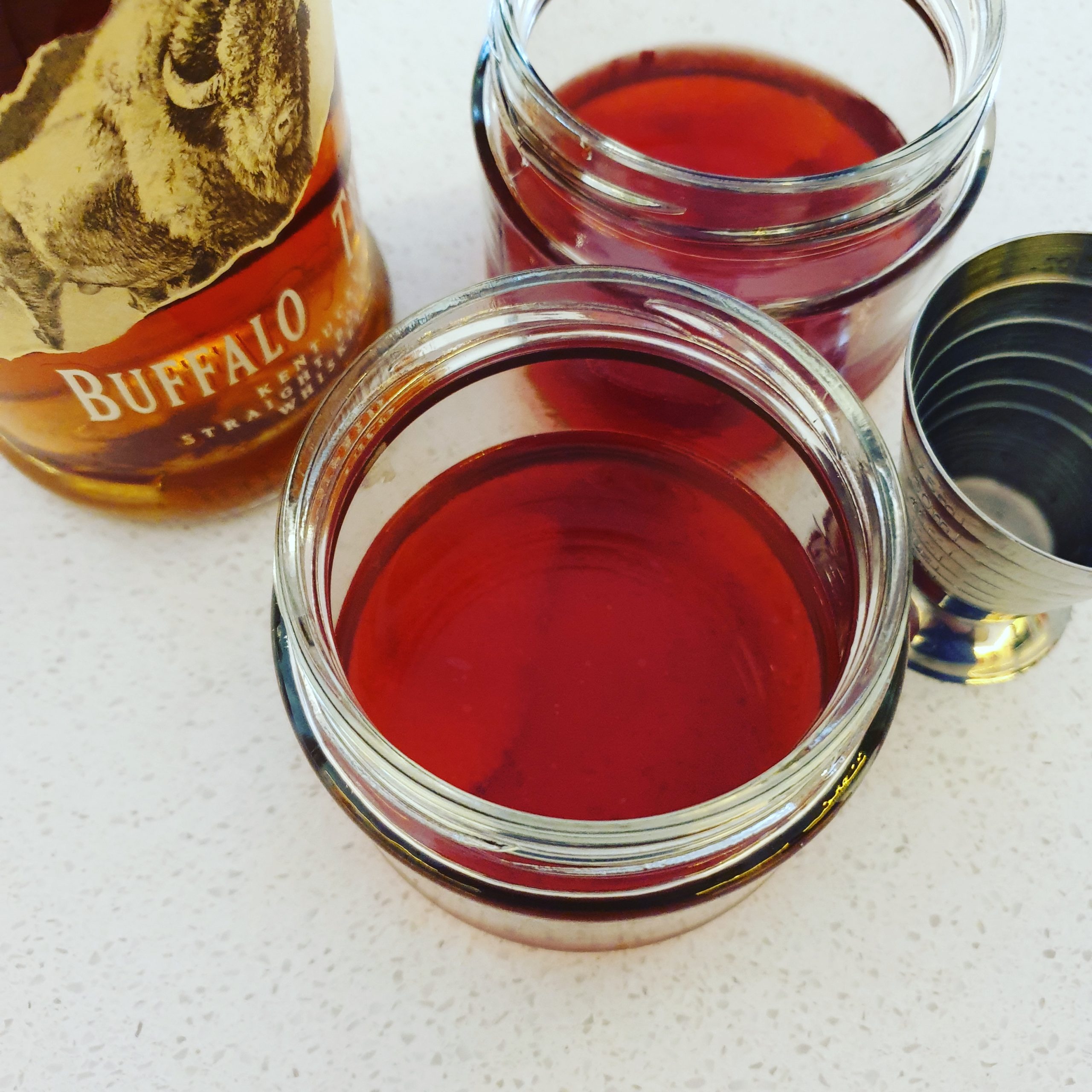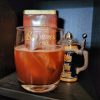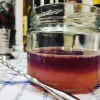Whiskey is a pretty broad class of spirit. In the title to this article we’ve named most of the big ones (Scotch Whiskey, Irish Whiskey, American Whiskey, Bourbon, and Rye), but there are other styles, often prominently from Japan or Australia. Even classes of Whiskey like Scotch have sub-classes between things like Blended Scotch Whiskey and Single Malt Scotch Whiskey (and don’t get us started on the different regions for Single Malts!).
We’re not going to explore less prominent forms of Whiskey, otherwise this article will get way too long. We’re a cocktail website, after all, so we’re really only going to go into the Whiskeys usually used in cocktails.
Obviously these Whiskeys are different, otherwise why would they be called different things? So let’s explore the different kinds of Whiskeys, what they are, how they’re made, and why they’re different from other kinds of Whiskey.
And a note before we start on the “e” in Whiskey: to make things easier to write and edit, we’re going to be spelling it Whiskey (with an e). We’re aware that Whiskeys from Scotland, Canada, and Japan are typically written Whisky (no e) while American and Irish Whiskeys usually have the e. We’re going to be uniform here to avoid the editing nightmare. After all, we’d much rather focus on the facts about the qualities of the different forms of Whiskies than have to worry about proper spelling.
What is Bourbon Whiskey?
 Bourbon Whiskey is a type of Whiskey that is made with at least 51% corn. The rest of the grains in the Whiskey can be anything else, but it needs to be at least majority corn. Bourbon distillers will use different amounts of corn as long as it’s at least 51%. The remaining amount of grain is usually mostly barley, but a lot will also use rye or even wheat.
Bourbon Whiskey is a type of Whiskey that is made with at least 51% corn. The rest of the grains in the Whiskey can be anything else, but it needs to be at least majority corn. Bourbon distillers will use different amounts of corn as long as it’s at least 51%. The remaining amount of grain is usually mostly barley, but a lot will also use rye or even wheat.
The other distinction that Bourbon has is that it must be aged in new charred oak barrels. It must also be produced in the United States (or a territory of the United States). This means that you can’t get something called Bourbon from, say, France. If it’s mostly corn and from anywhere other than the United States it needs to be called something else.
There’s some more technicalities around what Bourbon is including needing to be distilled to at most 80% alcohol by volume but can’t be aged at more than 62% alcohol by volume. It must also be at least 40% alcohol by volume when it’s bottled. It must also be aged for at least two years.
What does Bourbon taste like?
Bourbon tends to have a little bit of sweetness to it, especially compared to most other types of Whiskey. The typical flavours people usually find in Bourbon are vanilla, oak, and caramel which makes it quite smooth and perfect for either cocktails or on its own. Of course different Bourbons have different subtle flavour characteristics as well!
Check out some cocktails using Bourbon!
What is Rye Whiskey?
 Rye Whiskey is another common type of Whiskey that is at least 51% rye grain. So it’s a lot like Bourbon (which is at least 51% corn), but with rye instead. This is for the United States at least! Canadian Rye Whiskey doesn’t have a requirement for the total amount of rye in it, but typically includes at least some rye grain in it. For both, other grains are used to make up the difference, but barley is usually the next most prominent grain present.
Rye Whiskey is another common type of Whiskey that is at least 51% rye grain. So it’s a lot like Bourbon (which is at least 51% corn), but with rye instead. This is for the United States at least! Canadian Rye Whiskey doesn’t have a requirement for the total amount of rye in it, but typically includes at least some rye grain in it. For both, other grains are used to make up the difference, but barley is usually the next most prominent grain present.
Like Bourbon, in the United States Rye must also be aged at least two years in new oak barrels. It has similar regulations as to what proof it must be distilled, aged, and bottled at as well.
Unlike Bourbon though, Rye Whiskey can be produced anywhere. So while Bourbon can only be produced in the United States, any country may distill Rye and still call it Rye. This is why Canadian Rye Whiskey is also prominent, even though it’s not as closely regulated as American Rye Whiskey.
What does Rye Whiskey taste like?
Rye, as both a grain and a drink, tends to have a bit of a spicy and peppery flavour to it. When people describe Rye, the word “spice” is the most typically used to describe it. Like most other Whiskeys, you’ll also get elements of vanilla and oak thanks to the aging, but the big thing that sets Rye Whiskey apart from other Whiskeys is the spice!
Check out cocktails using Rye!
What is Scotch Whiskey?
Unsurprisingly, Scotch Whiskey is Whiskey made in Scotland. While other countries have tried to mimic some of the styles and traditions of Scotch Whiskey, for obvious reasons it needs to be made in Scotland to be called Scotch, but it doesn’t end there. Like many other types of Whiskey, there are regulations that the Whiskey needs to adhere to for it to be called a Whiskey.
The biggest regulation you’ll find for Scotch Whiskey is that it must be aged for at least three years in oak barrels. Unlike American Whiskey styles like Bourbon and Rye, the barrels don’t need to be new. While Scotch Whiskey can be aged in almost any kind of oak barrel, it’s typically aged in old Sherry barrels or old Bourbon or Rye Whiskey barrels from the United States (because what else are they going to do with all the barrels in the United States that need to be new!). The type of barrel used in the aging process can impart a variety of different flavours on the Whiskey, so distillers will use different barrels depending on what flavour they’re trying to get.
The other important regulation for Scotch Whiskey is that it can only use barley, unlike many other types of whiskey that may use a grain like rye or corn. Of course distillers in Scotland can use other grains, they just can’t call it Scotch Whiskey.
There are a few other regulations around how strong the Whiskey must be after distilling (no more than 94.8% ABV) and be a final minimum strength of at least 40% ABV. Other regulations are around purity and not putting in additives.
From there, Scotch is divided in a number of types like Blended, Single Malt, Single Grain, and more. It’s also divided into a number of regions which have their own characteristics; these regions include (but are not limited to) the Lowlands, Islay, Highlands, and Speyside. Discussing the differences between all of this is for another time though!
What does Scotch Whiskey taste like?
Scotch Whiskey is perhaps the most varied in flavour, thanks to different regions having different styles. Most notably, Scotch sets itself apart from other types of Whiskey from being a lot less sweet than other types of Whiskey. Scotch will have the typical oak and vanilla flavours other Whiskeys have, but may have a bit more smokiness and altered flavours from how the barley is dried. Overall Scotch tends to be more intense than other types of Whiskey with a more variety of flavours present.
Check out cocktails with Scotch!
What is Irish Whiskey?
This is another obvious one, Irish Whiskey is Whiskey made in Ireland. Although not a legal requirement, nor unique to Ireland, Irish Whiskey is more likely to be distilled multiple times, typically three time.
Other than that, like many other types of Whiskey, Irish Whiskey has a number of other regulations. Unlike Scotch Whiskey, Irish Whiskey may use any type of grain, but typically uses barley. But like Scotch, it must be distilled to at most 94.8% ABV and bottled at more than 40% ABV. And, like Scotch, Irish Whiskey needs to be aged for at least three years, but the type of barrels isn’t specified.
Like Scotch Whiskey, Irish Whiskey also has a tradition and regulations around Single Malt, Blended, etc. types of Whiskey. These distinctions tend to be more prominent in Irish and Scotch Whiskeys and are seen less in American Whiskey styles.
What does Irish Whiskey taste like?
Irish Whiskey tends to be smoother and sweeter than other types of Whiskey. It also possesses a little bit of fruitiness to it which makes it very easy to drink. Like other types of Whiskey, Irish Whiskey has notes of vanilla to it thanks to the aging process.
Here are some cocktails with Irish Whiskey.
Other Types of Whiskey
There are dozens of countries across the world who produce Whiskey. However, their Whiskey making traditions are often either younger or less intricate than those of the four listed above. You may be able to swap out some of the Whiskey styles mentioned above with similar varieties from other countries with great success. Just because it’s an old distillery doesn’t make it the best. In fact, a lot of distilleries in Australia have become more prominent and are winning awards; they often tend to be closer to the Scotch style of Whiskey.
So enjoy exploring Whiskey from around the world. The journey starts here.
And if you have Whiskey laying around the house and you’re not sure what to mix with it, check out our cocktail generator. It will give you plenty of ideas.
Cocktails with similar ingredients:
No similar cocktails.






